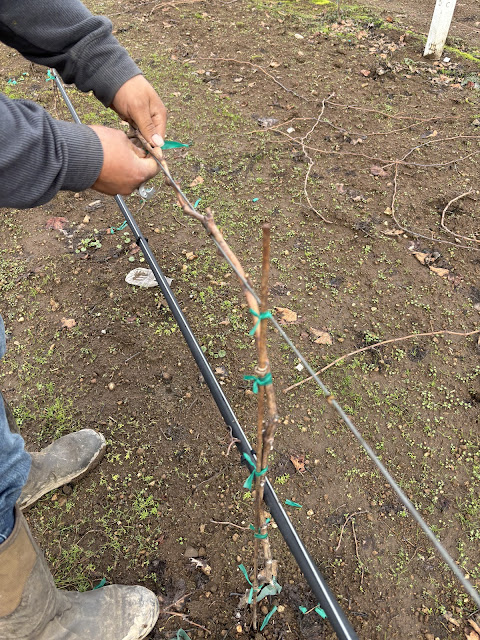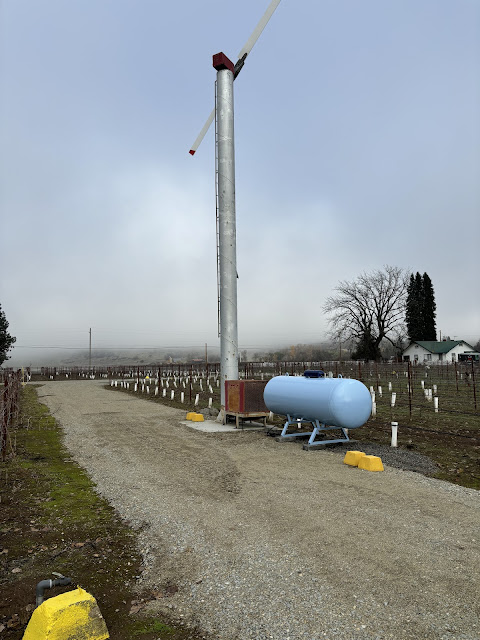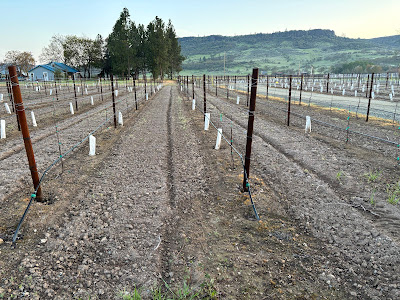"People have got to know whether or not their President is a crook. Well, I'm not a crook. I've earned everything I've got."President Richard Nixon
We each experience our own era. We awaken into our own status quo, our own era's initial condition. People in my age cohort were introduced to government by watching Douglas Edwards and Walter Cronkite and the Apollo missions. We heard the soaring language of JFK's idealism, civil rights progress under Lyndon Johnson, then Nixon, Watergate, and then squeaky clean Jimmy Carter's reaction to Watergate.
I was elected Jackson County commissioner in 1980, as the Jimmy Carter era closed out, but its values were still intact. It was the era of conspicuously clean hands. At no point in four years in office did anyone offer to buy me lunch. Or coffee. Or get me in on some development project that just needed a favorable land use decision to get going. Or contribute to a future campaign. That kind of thing wasn't done here.
Generation Z -- people born between about 1997 and 2012 -- people who are now in their formative young adult years are seeing an entirely different status quo from the one I experienced. Trump's first term was the era of "alternative facts," as one of his aides put it. This was no mere "credibility gap." Trump asserted his own reality and did so with joyous confidence; he claimed that he won the 2020 election by a landslide
Imagine what members of Gen Z saw when they looked at President Joe Biden. He was hopelessly old, older than any teacher they had had in school. As old or older than their grandparents. If their parents had Fox News on television, they heard about Hunter Biden's laptop. They heard President Biden be called the head of a "crime family" by Fox anchors. They learned that Hunter Biden had some sort of deal with Burisma, a Ukrainian oil company. They heard he earned money by dashing off paintings that rich friends of his father bought for $500,000 -- a sweet deal, and legal.
Their eyes opened up to politics in a world with news that members of Congress traded stocks based on information they got in committees -- something members of both parties did, and defended as OK. It is their status quo.
Their eyes awakened to a political world in which Trump is the center-stage actor. Trump is normal. His merchandise, his hotel grift, his business deals with the Saudis, his meme-coin legal bribery, and his pay-to-play are all the status quo, the initial condition. Trump is simply better at self-serving grift than prior grifters, doing it at a hundred times Biden's scale, and proudly announcing it. It is the way things are. Extort law firms to do free legal work? Sure. Extract pay-to-play contributions for businesses with pending regulatory issues. Sure. Create a cryptocurrency that gives nearly dollar-for-dollar income to Trump? Sure. Invite those largest "investors" to announce themselves at Mar-a-Lago? Of course. Why else buy the created-from-thin-air crypto coin if not to show Trump who his friends are?
This is the world young people are seeing. As Walter Cronkite put it at the end of each night's broadcast, "That's the way it is."
I was reminded of the extent of change when looking at this YouTube video of Richard Nixon's farewell speech to his staff. No need to watch it all. But click at minute 7:30 and watch two minutes of it. Observe the notion of public service. Observe Nixon's understanding of America's role in the world. For people without the time and inclination to click, a transcript is below:
 |
| Click |
As I pointed out last night, sure, we’ve done some things wrong in this administration, and the top man always takes the responsibility and I never got to, but I want to say one thing: No man or no woman came into this administration and left it with more of this world’s goods than when he came in. No man or no woman ever profited at the public expense or the public till.
That tells something about you. Mistakes, yes, but for personal gain, never. You did what you believe in. Sometimes right, sometimes wrong. And I only wish that I were a wealthy man. [Resigned laugh] At the present time I've got to find a way to pay my taxes. And if I were, I’d like to recompense you for the sacrifices you have made to serve in government. But you are getting something in government — and I want you to tell your children — and the nation’s children will hear it, too. Something in government service that is far more important than money. It’s a cause bigger than yourself. It’s the cause of making this the greatest nation in the world, the leader of the world. Because without our leadership, the world will know nothing but war, possibly starvation, or worse, in the years ahead. With our leadership it will know peace. It will know plenty. We have been generous, and we will be more generous in the future as we are able to.
But most important, we will be strong here, strong in our hearts, strong in our souls, strong in our belief and strong in our willingness to sacrifice, as you have been willing to sacrifice in a pecuniary way to serve in government.
I have spent a lifetime thinking the worst of Nixon. In the context of a Trump presidency, he looks good. Honorable. Honest. He possesses some self-understanding and humility. I had underestimated him.
[Note: To get daily delivery of this blog to your email go to: https://petersage.substack.com/ Subscribe. Don't pay. The blog is free and always will be.]




























